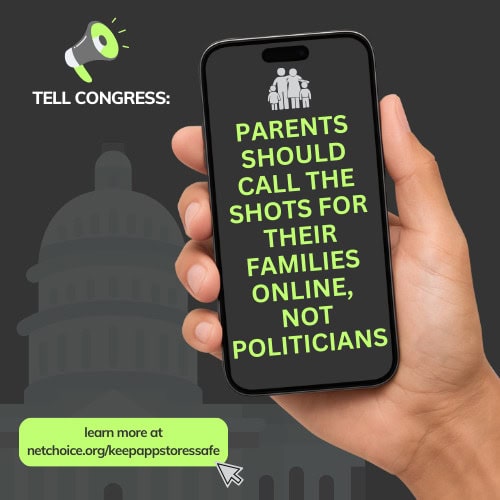Since Lina Khan was sworn in as Chairwoman of the Federal Trade Commission (FTC) in June, 2021, she has received criticism from Republicans, the business community, and even moderate Democrats like Mark Cuban — who told the Washington Reporter in an exclusive interview that it is time for Democrats to “move on” from Khan.
For decades, American antitrust law has centered around the “consumer welfare standard,” which holds that mergers harming consumers warrant regulatory action, while deals that have no impact or benefit consumers — through lower prices or increased innovation — are not targets for antitrust law.
Khan’s critics have argued that she has upended this standard, leading the FTC to oppose nearly every merger and deal, regardless of its merits. Khan opposed — and lost — Microsoft’s purchase of Activision. Khan targeted Twitter after Musk purchased the site, resulting in an investigation from the House Weaponization Committee into Khan’s conduct.
“Sometimes people suggest ‘take the L’ and cut one’s losses,” Rep. Darrell Issa (R., Calif.) told the Reporter. Issa, who sits on the Weaponization Committee, added that that is “not the right advice for Lina Khan, since she’s lost essentially every case. Like the most determined of ideologues, Lina Khan cares less about losing in court and more about heaping regulatory abuse on businesses and industries she doesn’t favor. That’s why her tenure can’t end soon enough.”
In the past two weeks, Khan’s actions have attracted even more ire from both Republicans and Democrats, including Cuban, a close Kamala Harris ally.
Cuban’s comments about Khan spurred fierce criticism from Sen. Bernie Sanders (I., Vt.) and Rep. Alexandria Ocasio-Cortez (D., N.Y.), who threatened an “out and out brawl” if anyone tries to replace Khan. Zach Lilly, the Deputy Director of State and Federal Affairs for NetChoice, wondered if “Lina Khan helped AOC and Bernie draft their tweets while they were all on the campaign trail together.”
Punchbowl News reported that Khan will hit the campaign trail for Democrats in key battleground states, a move nearly unheard of for the head of an independent agency. The merits of Khan as a surrogate remain to be seen.
Rep. Kelly Armstrong (R., N.D.) told the Reporter that “nobody in ND knows who [Khan] is.” Rep. Claudia Tenney (R., N.Y.) added to the Reporter: “How does she help? Gross.”
Rep. Bill Huizenga (R., Mich.), a leading contender to chair the Financial Services Committee in the next Congress, told the Reporter that it’s “sad to see these overt political moves happening. No wonder people are more cynical than ever.” He added that Khan’s campaigning makes it “look like she is fishing for her next job.”
Sen. Tom Cotton (R., Ark.) called Khan’s campaigning “remarkably inappropriate” and House Oversight Chairman, Rep. James Comer (R., Ky.) announced an investigation into Khan’s politicization of the agency.
“The Committee on Oversight and Accountability is continuing to investigate the politicization of the Federal Trade Commission (FTC) under your leadership,” Comer said in a letter to Khan. “During this election season, you have engaged in partisan political activities with numerous Democrat congressional candidates, undermining the FTC’s independence and its mission to protect American consumers regardless of partisan affiliation.”
Khan’s campaign activity has also led to significant scrutiny from taxpayer watchdogs. “Chair Khan’s political activity this close to Election Day encapsulates her tenure as chair of the FTC: the seemingly independent agency has taken an unfortunate turn towards partisanship,” Juan Londoño, a senior policy analyst at the Taxpayers Protection Alliance, told the Reporter. “Under her leadership, the FTC has forsaken its ultimate goal of protecting consumer welfare in order to advance an ideological agenda, creating long-lasting damage to an agency known for its bipartisanship and its ability to put consumers first.”
Tom Hebert, the executive director of the Open Competition Center, told the Reporter that “Khan’s record shows not only a categorical hostility towards mergers generally, but it also demonstrates her woeful inexperience as a manager, since Khan’s FTC is incapable of engaging in the kind of thoughtful case selection required by effective antitrust enforcement.” Hebert added that while “it’s one thing to lose some cases, it’s quite another to act as if you have unlimited resources and no restraints on pursuing theories of harm that are untethered from the factual record. Thankfully, the courts and Congress have schooled Chair Khan that this kind of arrogance and ineptitude won’t fly.”
In addition to the political controversy, Khan is facing two significant legal challenges. First, Express Scripts sued her for defamation and for violating the Administrative Procedures Act, following an FTC study critical of pharmacy benefit managers (PBMs) — a stance that aligns with Harris’s presidential campaign.
Now, the FTC is facing a new legal headache. UnitedHealth, Cigna, and CVS filed a motion to bar Khan from presiding over a case concerning the cost of insulin, citing her extensive public comments on the issue as evidence of bias.
This is the latest instance of Khan’s activism posing a problem for her current role. As early as 2021, Facebook was using her previous academic writings and work investigating big tech companies to argue that “any disinterested observer [would] conclude that she has prejudged Facebook’s alleged antitrust liability.”
A Senate Judiciary Committee aide told the Reporter that “Lina Khan probably isn’t the worst Biden appointee, but she’s in the top five for sure. The one thing she’s done that is useful is demonstrated to Republicans how we should use agencies to advance our political priorities.”
Another Senate staffer told the Reporter that “Lina Khan is blatantly politicizing the FTC. She’s using the Biden-Harris ‘price gouging’ talking point to divert the blame for inflation. But it’s not just a talking point when the FTC chair uses it. She’s doing actual harm to businesses when she takes official action to scapegoat businesses for ‘price gouging.’”
